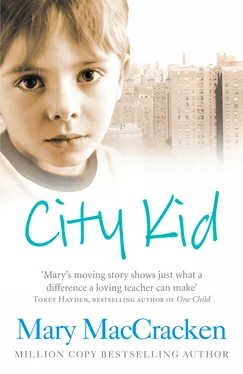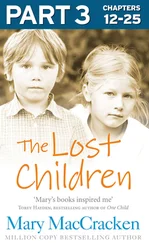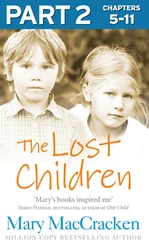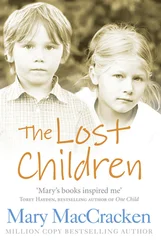But where were the children? Children had been the warp and woof of my life for years. Without ever really asking, as an education major I had assumed that my days would be filled with children. Not so. They saved the children until senior year, and then only for six weeks of student teaching.
I railed inwardly at the poor preparation the young teachers-to-be were getting. How could they learn to be teachers without children, without the models of experienced teachers, without being in a classroom?
I remembered Helga, the wonderful teacher I had worked under as a volunteer when I had first started, and all she had taught me. Where would these young people learn about commitment and involvement and communicating with children? Not in my courses in Background of Mathematics I, Adapted Physical Education, Integrated Techniques, Current Methods and Materials for the Mentally Challenged, and Teaching Reading to the Mentally Challenged.
Of all my courses, Background of Mathematics I was the worst. Not only did it have nothing to do with children, it was also couched in a foreign language. Math to me meant addition, subtraction, multiplication, fractions, decimals. Maybe word problems and a few math concepts. Not so to Mrs. Kaiser, our professor. She talked of sets and union and commutative properties.
Each morning she said coldly, “Good morning, class. I will explain the work to be assigned. Follow now.” With that she turned her back to the classroom and the tight blood braid that ran across the back of her head bobbed up and down as her chalk made numbers, arrows, circles with overlapping circles, equations resting between and below her drawings. She talked rapidly to the figures on the board, never turning her head. She covered one, two, sometimes three of the blackboards that surrounded the room.
Then, “Volunteer?” she demanded more than asked. Five hands in the front row shot up. She chose two and sent them to the unused portion of the board. Then she read a problem out loud and the race was on. Who would finish first? Who would get it right?
I watched from the back of the classroom, never volunteering and hoping only for invisibility and sudden insight.
Ian Michaels, the boy in the seat next to mine, attended only every other day and never volunteered. Instead he silently scratched out the problem on a back page of his notebook. He was always right, always ahead of the blackboard people.
I decided I would try to do the same. I was beginning to understand some of the vocabulary now – matching sets, equivalency, the commutative property – but usually I got lost about halfway through the problem.
One morning Ian’s hand reached lazily across my paper, underlining the place where I had gone wrong, putting it right, then finishing the problem. After several days of this, I began to follow it through, while Ian dozed beside me, coming awake just before the end of class to circle those I had gotten right.
Dr. Kaiser was a believer in unexpected quizzes. She would sit wearing the same bland expression as we arrived each day, but twice a week, always on different days, after her “Good morning, class,” the scribble on the board was put there for us to solve on paper and hand in.
I began to wake in the middle of the nights from the sound of chalk on blackboard rattling in my dreams. My stomach was queasy on the morning elevator rides from the apartment to our cars.
“Are you all right?” Cal asked.
“I don’t know,” I said. “I’ve got a sixty-eight average and I dream about Mrs. Kaiser.”
Now Cal, too, studied the associative, distributive, and commutative properties, shaking his head, saying almost inaudibly, “This is math?” Cal was an engineer and inventor with over eighty patents. If he had trouble understanding Background of Mathematics I, how could I ever hope to get it straight?
I was okay in my other courses, averages in the nineties, but I wasn’t at all sure I would pass Background of Mathematics I.
I said so to Ian Michaels.
He opened his eyes slightly and looked at me through half-raised lids. “No problem,” he said between yawns. “Just copy my answers on the final. Then go back and mess up enough to get what you need.”
He closed his eyes again.
Cheating. He was suggesting that I cheat.
I knocked my sneaker on his boot. “That’s cheating,” I said.
His eyes stayed closed. “No shit,” was his nearly inaudible comment.
I wasn’t sure how to interpret this. I sat silently drawing circles on my notebook, watching the others file into class.
Everybody cheated. This was my first exposure to the marketing of papers. All the various societies and clubs on campus had a file of papers for every course, going back over several years. This was supposed to be a secret, but unless you were considered the type that would rat, the availability and cost of papers were discussed openly. Students mocked professors for giving an A to a paper that had earned only a B two years before. Copy machines made it possible simply to “rent” a paper for a day, copy it, return it, and then, depending on audacity and/or willingness to risk, either retype it or simply hand in the copy, saying you were keeping the original for your files.
Did anybody ever get caught? Not that I knew. Did the professors know what was going on? Again, not that I knew. But somehow the fact that it was happening contaminated the atmosphere. There was an “I’ll get away with as much as I can” philosophy among a large group of students.
The environment was so impersonal that the students often reminded me of little children with their hands in the cookie jar, wishing desperately that someone would catch them, just so they’d know someone cared.
Adapted Phys Ed was a two-credit course, which meant that we met only three times a week. As if to make up for this, Mrs. Hogan assigned twice as much work as any other teacher. Each class ended with a lengthy new assignment, and a moan from the students. Mrs. Hogan had graduated from Union State five years earlier. It was as if she were saying, “In my class, you’re going to work for those two credits.”
I admired her spirit, but wished she had a subject closer to my work. One of her favorite assignments was to ask us to write twenty abstracts on twenty different physical education articles. I spent hours in the library. Locating the article was a major problem in itself; often the one needed issue was missing from the stack. Then I spent more hours reducing articles on wheelchair volleyball and adapted jungle gyms to short abstracts, and still more hours typing them up. Where were the children? What was I doing here?
We were assigned to demonstrate before the class a “phys ed technique” that would be useful with “special children.” I could not do this. I had taught Rufus to swim, Hannah to ride a bike, Brian to climb a mountain, but I could not bring myself to stand before those forty nineteen-year-olds and put on a demonstration.
An old shyness returned, and for the hundredth time I thought, “I cannot do this. I cannot stay here in these classes for two whole years, while the children are out there.”
Cal put his arms around me in the middle of the night, and then wiped my tears. Neither of us spoke.
The next morning I wrote a letter to Mrs. Hogan asking if I could substitute a paper or else more abstracts for the demonstration. Perhaps because of my age, the letter came back. “Permission granted for substitution of twenty abstracts for class demonstration.” Back to the library.
If only I had known about Luke then.
Our final math exam was on December 20. I was later than usual and I could feel nervousness building as I inched the car along the highway. It was snowing lightly and snow combined with Christmas shoppers made travel slow. I finally reached the college parking lot, found a spot heading downhill, and then walked rapidly across campus, quiet and beautiful under the fresh cover of snow.
Читать дальше












